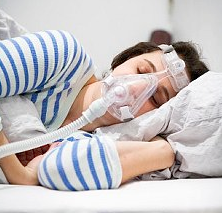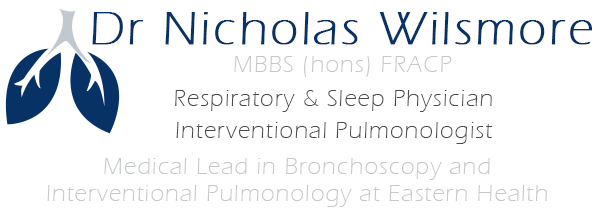Sleep Disorders
Sleep disorders are becoming increasingly recognised in the community, as there is a wider recognition of the benefits of restorative sleep, and concerns with regards to potential ill effects from chronic sleep problems.
There are a large variety of sleep disorders, with the commonest concerns being ones of; insomnia, snoring, sleep apnoea, restless legs/periodic limb movements at night, and narcolepsy.
In many cases, a diagnostic sleep study will be beneficial with regards to assessment of these concerns, although certainly not always. A sleep study is also an important part of the work up for daytime fatigue/somnolence, as primary sleep disorders may present with few symptoms other than reduced daytime function. It is however important to have simple tests prior to consideration of a sleep study for this reason of reduced daytime function, including simple blood tests and exclusion of depression.
Snoring/Obstructive Sleep Apnoea (OSA)
OSA is very prevalent in the Australian community, with estimates of up to 25% of men, and 10% of women being affected. Snoring is very commonly one of the main symptoms, but not everyone who snores has OSA. OSA occurs when parts of the upper airway collapse, interrupting the flow of air into the lungs.
Common symptoms or signs of OSA can include:
- loud snoring
- Witnessed pauses in the breathing
- Awakening with gasping or choking episodes
- Frequent urination overnight
- Waking up un-refreshed
- Waking with headaches
- Reduced daytime energy or daytime sleepiness
In addition to affecting daytime function and quality of sleep, OSA can significantly impact on other health problems, and also reduce life expectancy. Given these concerns, early diagnosis and appropriate treatment are very important.
Possible treatment options for snoring and/or OSA can include:
- Weight loss
- Alcohol reduction
- Smoking cessation
- Dental appliances
- Positive pressure therapy (CPAP)
- Surgery (in select cases)
- Avoidance of supine sleep

Restless Legs Syndrome (RLS)/Periodic Limb Movement
Restless legs are often described in different ways by different patients. Usually however, it is some form of uncomfortable sensation that is only relieved by movement. It may affect any limb (including the arms), but is most often seen in the legs, hence the name. Periodic limb movement disorder (PLMD) is a related condition, whereby patients have frequent leg movements at night that affect the quality of their sleep. RLS/PLMD is one of the differential causes of un-refreshing restless sleep, and poor daytime energy.
Common causes of RLS/PLMD may include:
- Low iron levels
- Over-active thyroid
- Poor kidney function
- Medication side effects (in particular, antidepressants)
- Lifestyle factors (excessive alcohol, caffeine, smoking, stress)
- Idiopathic (no known cause)
It is important to optimise lifestyle factors prior to embarking upon specific medication treatment. Cutting down on caffeine, alcohol and stress, and light exercise or muscle stretching/massage can all assist. Some people find benefit from a trial of magnesium, however, there is no strong medical evidence to support this. If conservative measures fail, then further assessment with a sleep physician may be warranted.
Insomnia
Insomnia relates to difficulty maintaining or initiating sleep. Acute temporary insomnia is very common, and usually resolves without treatment, however, chronic insomnia can become very debilitating for patients. It is important to remember that whilst insomnia can provoke anxiety, it is not life-threatening, and there will usually be some strategies that can improve things greatly for individual patients.
Some general tips for insomnia:
- Avoid becoming overly stressed or anxious (sleep will come when it will come)
- Avoid spending long periods of time in bed awake (bed should be for sleep)
- Avoid other activities in bed (such as watching TV)
- Avoid excessive electronic device use in the evening hours (i.e. no tablet or computer use during the evening)
- Avoid caffeine after midday (caffeine is present in many foodstuffs, not just coffee)
- Ensure adequate sunlight exposure during the daytime hours (at least ½ hour outside, without sunglasses on, preferably in the early to mid morning)
- Consider potential benefits of exercise
- Avoid alcohol at night.
- Consider potential benefits to stress management, relaxation exercises or some sleep psychology input.


